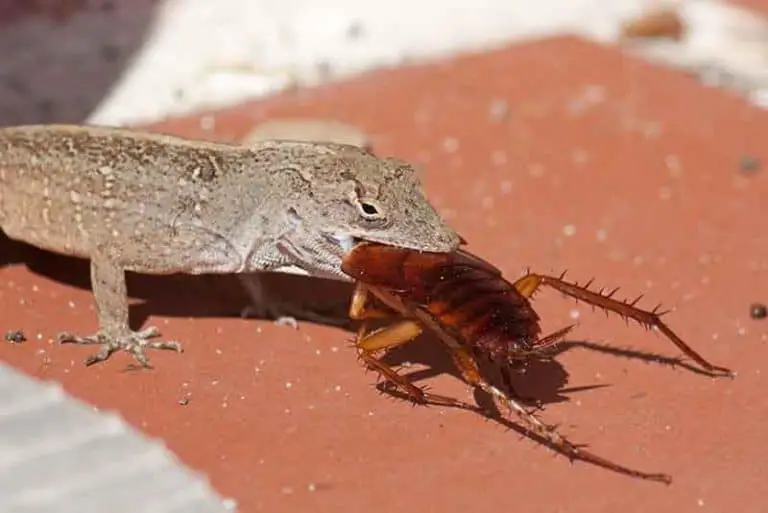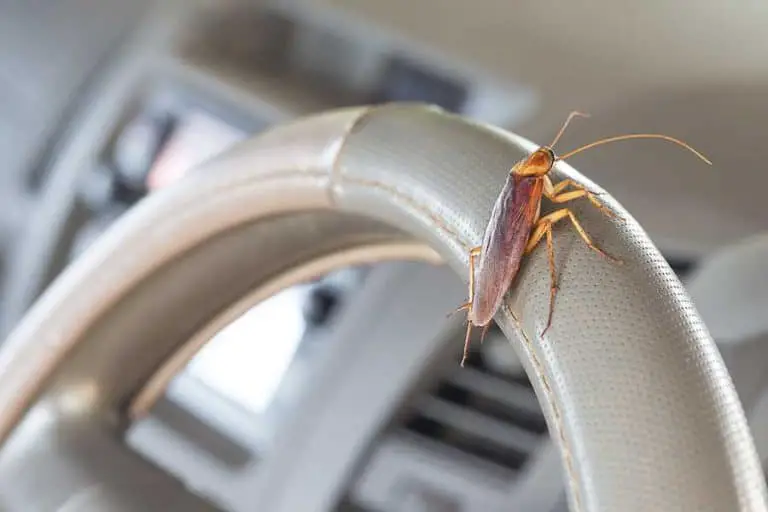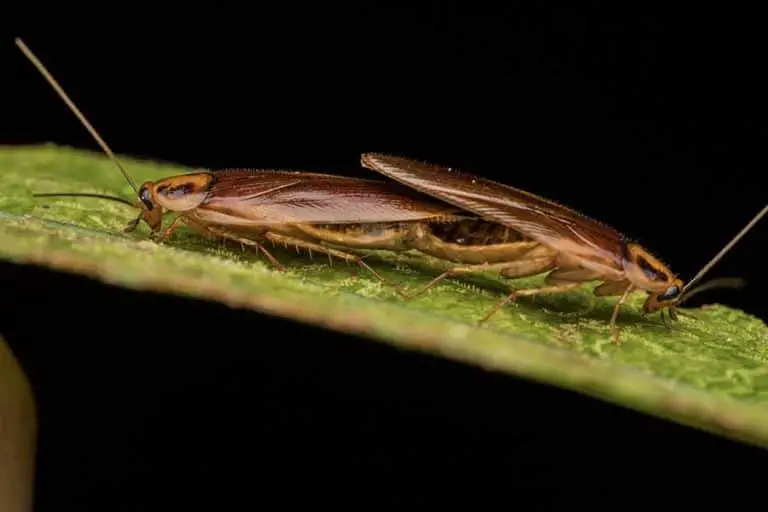Can I Break My Lease Because of Roaches?
Living in a rental place infested with roaches is not pleasant. A roach-infested home is also a health risk. However, packing up your bags and leaving the rented home is a breach of landlord-tenant contracts.
You can break a lease due to roaches in most states. The landlord has a responsibility to address the issue. The tenant has the responsibility of notifying the landlord of the roach problem before breaking the lease as well. Legal guidance is recommended for breaking the lease.
Too many roaches in a rented home represent a real problem. One of the best actions is to notify the landlord as soon as you see the roaches infesting the home as they multiply rapidly.
A rapid roach multiplication rate might mean you need to vacate your home early. This implies legal responsibilities.
Breaking the lease due to roaches
While most states have different rules for breaking a lease due to roaches, it’s generally the responsibility of the landlord to address the issue. Once notified, the landlord may or may not enter the property without your permission to address the issue. The landlord must maintain the property.
Breaking the lease is a bit more complicated, even if the landlord has responsibilities. You need to seek legal guidance on how to break the lease.
However, even if you win a legal dispute, you might find out you still lose references for future leases and you might need to pay legal fees until a jury has decided the outcome of the legal dispute.
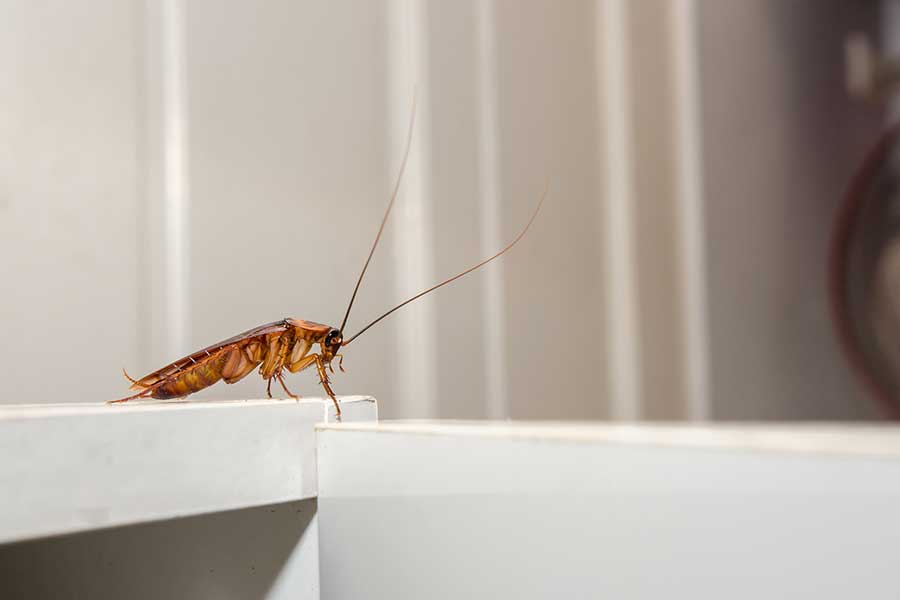
What breaking the lease because of roaches implies
Breaking the lease should be seen as a last resort in the case of roach infestation. You need to ask the landlord to fix the issue by hiring an exterminator and by dealing with the problems that attract cockroaches into the property.
This can be done verbally or in writing. The landlord is obliged to fix the issue and to eliminate the roaches.
Landlords normally hire a pest control company at this stage. It’s the duty of the landlord to have the problem eradicated.
Here’s how the process normally goes.
Making a complaint to the landlord
You first need to make a complaint to the landlord. Ideally, you’d keep a record of this complaint as this might serve as evidence in the case the problem isn’t fixed and it results in legal action.
Talking to your landlord and calmly explaining the issue is always recommended as an alternative to long costly legal action.
Allowing the landlord to fix the issue
Allowing the landlord time to fix the issue is recommended next. The amount of time a landlord has to fix a roach problem might depend on the level of infestation.
An important roach infestation should be dealt with between 1 and 3 days. Having just a few roaches in the house might involve patiently waiting for a solution for up to a few weeks.
Writing a complaint to the landlord
If this period passes without a solution to the problem you can either talk with the landlord again or write a formal complaint. Records of the complaint should be kept as evidence for any potential legal action further on.
A formal complaint should be written in a good tone explaining the issue. You should not forget to write a date on your complaint about reference. Checking the correct address to post the complaint is also important. You might not have a legal alibi if the letter doesn’t reach the landlord.
Legal action
Legal action is recommended further on if both verbal and written complaints haven’t solved the roach problem in a reasonable amount of time.
Legal action is generally based on particular circumstances. You want to discuss your case with an attorney before leaving the home as this might still be a breach of the landlord-tenant contract.
Attorneys can advise on the best methods of dealing with the situation from here.
Some attorneys try to notify the landlord once again on your behalf before proceeding with legal action.
Collecting evidence
The entire process should be based on evidence. Taking pictures of roaches and even collecting roaches in airtight containers might serve as legal evidence.
Communication and notifying the landlord should be based on real evidence as well.
Avoid withholding rent without consulting an attorney
One of the biggest temptations for tenants is to withhold rent until the issue is fixed. Depending on your contract and location, this might be illegal.
It’s best to have an arrangement with the landlord in writing that you fix the issue yourself and withhold the amount it took to fix the issue from the next month’s rent.
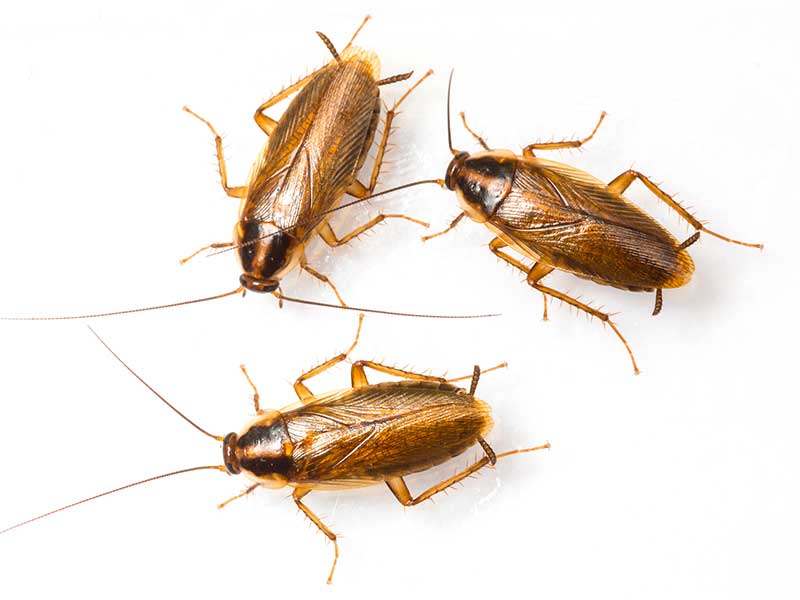
Leaving the home might come with the following unwanted results
Legal action can be brought up against tenants vacating a property without notifying the landlord even of that property has a roach infestation.
A bad credit score
One of the first problems that arise by vacating the property without some type of resolution is a bad credit score. You want to check this issue with a financial advisor.
Bad landlord references
References might be bad if you decide to leave a property without notifying the landlord. Many landlords offer their properties on a word of mouth basis and your leaving the home might work against you.
You could get sued
Finally, the landlord can decide to pursue legal action against you when you decide to leave the house without resolving the issue. You might have to pay the remaining rent amount according to your lease and you might also have to pay all legal fees when the legal action concludes.
6 Things to do if you can’t break the lease
Breaking the lease might be impossible if it stipulates that roaches should not be a reason for vacating the home. In this case as well as when you want to avoid legal action, it’s best to think about the measures you can take with or without the help of the landlord to live in a healthy safe space.
1. Check if solving the issue can be deducted from the rent
Some landlords might be unwilling to cooperate due to the high costs associated with hiring a contractor. But you may offer an alternative of hiring a contractor on the behalf of your landlord, paying for the pest control issue to be fixed, and then deducting the payment from your rent.
It’s best to have a written agreement for this solution. A written agreement acts as a guarantor on your behalf in case of further legal action.
2. Find the nest
You need to find the nest or the source of roaches in your home. This can be a bad door or window sealing as roaches might be coming from other properties to your home.
A roach nest might also be found in an area of the property with plenty of food. In many cases, eliminating the foods roaches feeds on will eventually stop their multiplication.
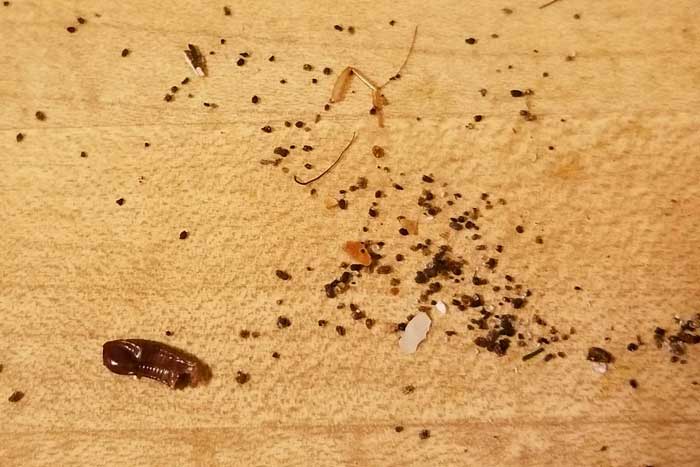
3. Check humidity levels
Roaches love humidity and warmth. What seems like a food-enhanced problem of roach infestation might also be caused by high indoor humidity.
There are many reasons for the high humidity inside the house. Poor ventilation is one of them. You should notify your landlord of all of the problems you discover such as poor ventilation, mold, and high indoor humidity.
4. Check for water leaks
Water leaks might be responsible for high indoor humidity. Some leaks are known to attract roaches and even other pests.
Checking all water pipes is recommended when you try to fix the roach problem. A plumber might be able to do a thorough check on potential water leaks. Some water leaks can be dealt with on the spot by you while others might involve hiring a contractor. Notifying the landlord on the leak is always recommended.
5. Set up traps with baits
Roach traps might be needed until you find the cause of the infestation. Roach traps use various types of bait. They are placed under or behind furniture. Roach traps might be provided by the landlord if you discuss the solution together.
6. Keep the home clean
One of the best actions to consider whenever you live in a leased property is to keep the home clean. Frequently cleaning behind furniture and thoroughly cleaning floors, walls, and areas of the home such as the kitchen are recommended.
A clean home without high humidity and easy-to-access food will not attract roaches. Even if some roaches get inside the house, they will move on in search of food when your house is clean.
Summary
Habitable space is your right as a tenant. Local health departments can establish if a home is habitable or not for you.
Once you know if the home is habitable or not, you can pursue requesting a solution to the landlord. The landlord may or may not agree to fix the roach problem by hiring a pest control professional.
Alternatively, you can hire a pest control contractor yourself and skip all the hassle of communicating with a landlord, especially if you don’t have the best relationship.

